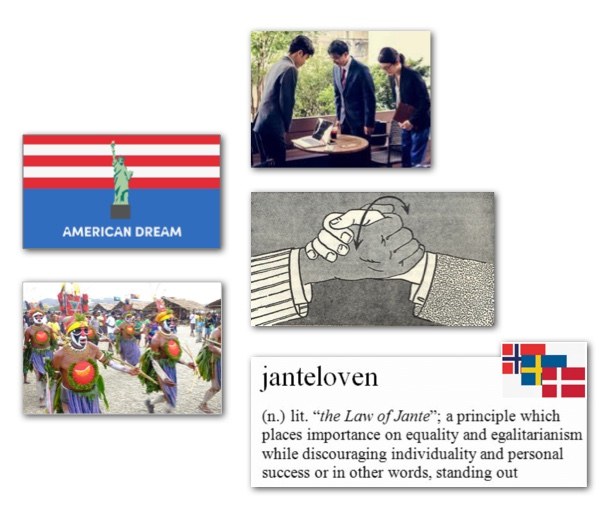Peter Drucker, the legendary management guru, once said:
“Culture eats strategy for breakfast”
What it means is that no matter how great your strategy may be, if you don’t have the culture which supports that strategy, you can forget about implementing any strategy.
Because culture will always have a greater impact on the outcome.
For that reason, it makes sense to reflect on the kind of culture you want to create when setting up a PMO.
But what are the cultural ‘values’ you should look to promote?
This is what we’ll explore in this article. It is based on a conversation I had with our PMO Strategy Advisor Gerardo Navia. Gerardo has tremendous experience building Project Management Offices (PMO) and understands the cultural factors like nobody else.
But before we dive into the PMO perspective on culture, let’s clarify what culture is really about.
What is culture, really?
Put it simply, culture is a set of beliefs, knowledge, practices and customs (also known as traditions) that we create as a social group to interact within the group or with outsiders.
Culture is a mix of attitudes that we define ourselves by as human beings. Transferred to the world of business and management, we can say culture is what defines the character of an organization. These cultural features are guarded like a treasure. And because cultural values are shared, they are inherited or transferred directly or indirectly to members of a group.

Why culture matters so much – for a PMO!
The setup of a PMO is a big endeavor, and you may already have hundreds of steps to complete on your PMO checklist. So how should you prioritize the cultural question? Is it really urgent?
Yes, we think so. In fact, it should be your 2nd step after having defined the specific benefits your PMO should provide to the organization (read the article about the benefits a PMO can provide).
How culture determines the success of your PMO:
- A PMO is always embedded in a larger organization. So you want to make sure the PMO’s culture is aligned with your overall corporate culture. Otherwise, you will find it hard to make an impact and influence the way projects are handled.
- The impact you will make with a PMO is heavily dependent on the quality of relationships with stakeholders such as functional leaders and executives. To earn their trust, you have to respect their ‘rules’ and their ways of doing things. We can look at these rules as cultural values.
- Finally, there is the uniting element of a PMO: A PMO should help to foster ties between departments and to promote collaboration inside the organization to improve the quality of projects (most projects fail due to a lack of collaboration and communication!). Therefore, a PMO culture that promotes unity automatically creates the foundation for better collaboration, and thus for better project outcomes! Your starting point for achieving unity is to say ‘no’ to a blame culture and instead promote a culture focused on finding solutions.
So as you can tell, culture is not an optional aspect to think about when starting a PMO. It is the basis for PMO that will make an impact.
Now let’s look at specific values a PMO culture should promote.
The Five Pillars of PMO Culture
We can break down the cultural values of a PMO into five groups:
- Vision
- Mindset
- Values
- Agility
- Skills
Vision
A PMO that is supposed to make an impact needs to have a powerful vision. And that vision needs to be incorporated into its culture. The PMO’s vision is really the reason for its existence because the PMO is here to resolve the challenges to assure projects are delivered according to strategic management plans. The vision is the foundation of the PMO culture because the PMO team members will be more open to the other cultural pillars when there is a powerful vision that guides their actions. The PMO’s vision can be shared with the team members and stakeholders in the form of a simple mission statement.
Tip: A great PMO vision is inspiring people. And it is defined broadly enough so that it can garner support from all stakeholders, and not just from a specific group. A PMO vision should make people the main factor for achieving the defined goal, along with processes, technology, and openness for market trends.
Mindset
Mindset is what defines the boundaries and scope of the PMO team members’ roles. It is the beacon that helps the PMO team know their terrain. It also helps the team judge how far they can go in their thinking. The right mindset is also what enables the PMO team to challenge the status quo, make decisions, and initiate changes where they see a need.
What mindset should you be looking to promote? As mentioned earlier, unity is very important to achieve the PMO’s vision. Unity within the PMO itself, but also within the entire organization. Therefore the PMO mindset should emphasize team cooperation using standardized procedures for project delivery.
There is also transparency. Actions and results should be visible to everybody. Finally, communication: In line with your goal to achieve transparency, any communication should be open, providing all necessary information when needed, and any questions should be addressed in a timely manner.
Values
A PMO culture should establish values that define the quality of work, timing and priorities. When in doubt, the PMO team members can check against these values for guidance, especially in cases that are hard to decide. Of course, these PMO values must be compatible with the organization’s overall values and ethics.
Some of the key values a PMO should promote are accountability to ensure flawless delivery of projects, a high level of responsibility through clearly defined responsibilities as well as consistency in the way projects procedures are implemented and projects are handled.
Agility
As a cross-functional unit, a PMO is a natural leader in change management. For this reason, a PMO must exhibit the agility that the business pressure demands to respond quickly to changing winds in the business environment. What are some specific traits a PMO must demonstrate?
Flexibility: Remember we said earlier that a PMO is a change agent who promotes change in an organization. As a change agent, a PMO requires flexibility from other departments. Therefore it is obvious that the PMO and its team must demonstrate flexibility themselves. Flexibility to adapt new ideas, new technologies, new ways of doing things, flexibility with regards to the needs of its customers. Flexibility also with regards to ways of working, supporting a mix of virtual and in-person work.
Connectivity: To make a change in the organization, a PMO has to become connected to all branches of the organization. Connecting with the different departments will also help reduce the “burden of rejection” within the organization – a problem that many (less connected) PMOs struggle with.
Relevancy: A PMO can justify its role as long as it stays relevant. Relevant for its stakeholders and for the company. Relevant in the sense that the PMO can clearly show to departments and functional leaders that it is really helping to fix their problems.
Skills
As a PMO you are going to hire team members, and you have to develop and train your team members so that they can do a great job. But what skills should you be looking for in team members? And what skills should be developed?
Soft skills: Strong soft skills enable the PMO to have productive interactions within the team and with outsiders. To build trust with stakeholders and functional leaders of the organization. And finally to implement the kind of changes and processes that will ensure successful delivery of projects on a consistent basis.
Some specific traits you should be looking for when building a PMO team are a high degree of diplomacy as well as the ability to communicate accurately up and down the management ladder. PMO team members should also have empathy and they should be capable of coaching others because training PMO and non-PMO team members in the new project processes will be one of their key responsibilities.
Also, with organizations becoming more global and projects often being handled by distributed teams based on different continents, intercultural communication skills are becoming more important. And no, intercultural communication is not about being able to say “Una cerveza por favor” to order beer in Mexico. It is really about understanding cultural patterns and mindsets on a deeper level, as I’ve explained in my article The Ultimate Guide To Managing International Projects.
Hard Skills: PMO team members and its leadership also require a great dosage of “hard skills” in their respective areas of work: A good understanding of business management, basic legal skills, an understanding of statistics for data analysis and reporting as well as tool-specific skills.
Conclusion
Defining a culture for your PMO doesn’t have to be difficult. Just ask yourself what specific values you want your team to live by and what mindset will make them successful. A useful framework for organizing your ideas around PMO culture is the 5 pillar model we used in this article. It breaks down cultural values into five main pillars of Vision, Mindset, Values, Agility and Skills. With a strong PMO culture in place, you have laid the groundwork for making an impact and boosting the project track record of your organization.
Author
-
Hi, I’m Adrian, a Senior Project Manager and the Creator of Tactical Project Manager, where I teach a pragmatic approach to project management. Led large-scale IT and business projects for over 10 years. My goal is to enable you to lead any project with confidence.
View all posts



